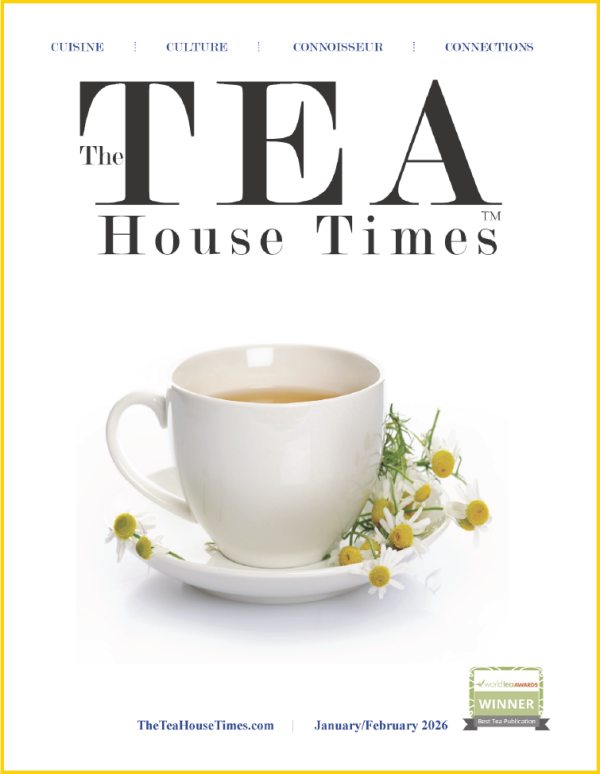- - -


 by TEA ADMIN, Website Admin
by TEA ADMIN, Website Admin
Lisa See, the author of a bestselling novel in which tea plays a central role, will give the keynote address at the sixth annual colloquium for the UC Davis Global Tea Initiative for the Study of Tea Culture and Science (GTI).
See’s novel, The Tea Girl of Hummingbird Lane, explores the lives of a Chinese mother and the daughter she gave up for adoption by an American couple. While the mother continues the grueling work of farming tea as her family has done for generations, her daughter lives a privileged life in California. Both the mother and daughter are torn by their separation and search for answers in tea.
See’s keynote address at 9:30 a.m. will kick off an all-day, online colloquium on Jan. 21, titled “The Stories We Tell: Myths, Legends, and Anecdotes About Tea.” The online event is free and open to all, and will include a wide range of presentations, such as tea cultivation in California, tea and Soviet identity, tea and spirituality in Vietnam, tea in restoration England and the tea collection at London’s Royal Botanical Gardens, Kew. Presentations will be made remotely from Sri Lanka, Vietnam, Great Britain, Columbia and around the United States.
To register and learn more about the colloquium, visit the GTI website.
Shortly after The Tea Girl was published in 2017, director of the Global Tea Initiative Katharine Burnett received it as a gift from her husband.
“I devoured it,” said Burnett, an art history professor who specializes in the history, theory and collection of Chinese art from 1550 to today. The theme for the 2021 colloquium, stories connected to tea, had already been decided when Burnett realized it could connect well to See’s book.
“I reached out to her and she immediately said ‘I’m in,’” Burnett said. See will be joined in her talk by her research partner Linda Louie, owner of the Bana Tea Company.
To research The Tea Girl, See and Louie visited a tea growing and processing area in China.
“We were living tea 24 hours a day,” See said.
The complex tea culture of Asia provides a rich backdrop for The Tea Girl and other books.
“There is a deep relationship to philosophy, poetry and art – it just hits so many areas,” See said.
Stories about tea can take many forms: the history of its cultivations, its role in many cultural practices from religion to art making, to the commercial beverage industry where tales about wine and coffee are rich. This year’s theme grew out of the 2020 colloquium, which featured the comparison of wine and tea cultures, and the successful narratives in the wine industry.
The signature image for the colloquium is a blue and white ceramic tray from the mid-19th century Netherlands that is decorated with two couples having an animated tea party. It was donated to the GTI by Jeffrey Ruda, UC Davis professor emeritus of art history. The art history program is part of the Department of Art and Art History in the College of Letters and Science.
While the wine and coffee industries have done a good job of telling their story and selling their products, tea has lagged far behind even though it is more widely consumed than wine and coffee, Burnett said. According to her sources, tea is a $12 billion industry, far surpassed by coffee at $80 billion and wine at $70 billion.
Burnett hopes that the inclusion of See as this year’s keynote speaker and the online format due to COVID-19 will make the event more broadly appealing than in the past, she acknowledges.
“The upside is more people can attend, and we’ve heard participants will be joining us from Japan, Taiwan, Malaysia, New Zealand, Australia, Kenya, Great Britain and the Americas,” she said. “We should have a much larger attendance. And that’s saying something. GTI Colloquium audiences typically range from 400 to 600 people.”
For the 2021 colloquium, the GTI conducted an international call for presentations, casting a much wider net than ever before. GTI also just launched the International Society of Global Tea Scholars, an organization that all who research and work on tea at research institutions or in the industry can join. The inaugural meeting will be held online Jan. 22.
“The colloquium features scholars and students, experts and industry professionals, and will cover topics from the humanities and social sciences to science, agriculture and health,” Burnett said. “Attendees will gain deep understanding of tea, tea culture and the business of tea. UC Davis led the way for the study of wine 50 years ago — transforming California into a powerful wine producer,” she said. “Now, through GTI, UC Davis is leading the way for California to become an important tea producer.”
— Jeffrey Day, content strategist in the College of Letters and Science
- - -
Click for more eNews + Blog Archives
© All content + images copyright of news/blog providers.
- - -
NOTE: The inclusion of news or advertising in The Tea House Times publication, on our website, or in our online eNews does not constitute endorsement.
- - -
POSTS SPONSORED/PUBLISHED BY TheTeaHouseTimes.com
Weekly eNews is circulated via email. Join list at top of home page.
The Tea House Times is published 6x per year in print & digitally.
INFO - SINGLE ISSUES | SUBSCRIBE | ADVERTISE | CONTACT
SOCIAL MEDIA - Follow us @teahousetimes
EDUCATION OPTIONS-
TeaCourse.com | TeaEtiquetteCertified.com | TeaCourseFastTrack.com
ONLINE TRADE SHOW - TeaTradeShow.com
SHARE THIS↓



